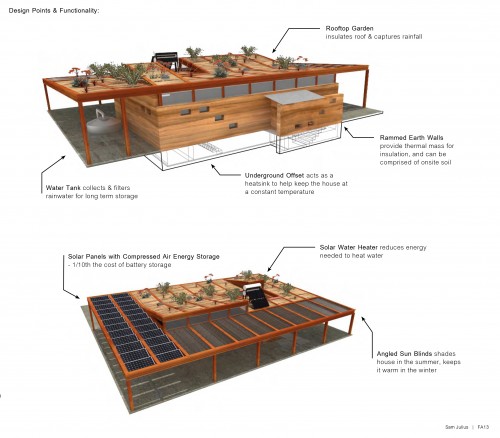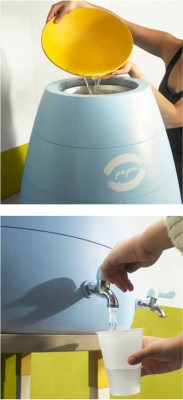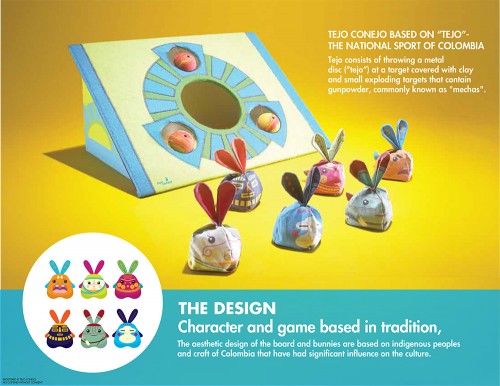
From Sam Julius’ ‘Sustainable Urban Housing’ entry
Our homes, cell phones and laptop screens are filled with thoughtful and functional design. But what about art that creates social impact? Can design influence change on global issues like sustainable housing, access to clean water and empowering disadvantaged women?
Projects featuring practical solutions to these concerns designed by Product, Illustration and Environmental Design students were selected as the winners of the 2013-2014 Denhart Family Sustainability Scholarship competition. Created by a generous gift from Gun Denhart, and son, Christian Denhart (BS 10 Product), the prizes are annually awarded to students addressing environmental and social causes in their work. The scholarships are devised to increase awareness of art and design’s unique capacity to advance sustainability.
The first place award of $15,000 was awarded to 7th term Product Design student Sam Julius for his ‘Sustainable Urban Housing’ project. He approached the project inspired by the challenge of excess demolition and renovation debris discarded in landfills. Julius’ system design re-purposes materials from deconstructed houses, and in doing so, achieves many goals: producing maximum reuse of original material, reduction in transportation of new materials and saving energy the construction of a home. One of the key findings during the initial stages of Julius’ research was that most sustainable home designs focus primarily on two things: energy usage and recycled building materials. Prefab houses are built in a factory and shipped to location, but this doesn’t alleviate the impact debris disposal creates, nor does it leverage useful materials already available onsite. His solution combines past and present techniques: locally sourcing heavy materials, using passive building techniques for energy conservation and applying technology only where it is most needed.
Second place, and $10,000, was awarded to 7th term Illustration student Carolina Rodriguez for ‘Papa’: a water filter and community exchange that provides safe and reliable sources of drinking water. ‘Papa’ is a water filtration vessel designed to support and empower base-of-the-pyramid communities in Colombia. Applying a ceramic water filtration method, ‘Papa’ is designed to be manufactured in Colombia and deployed through community soup kitchens. The self-sustaining model connects production of the vessel with NGOs and governmental agencies working within Bogotá and community member families.
Connie Siang Bakshi, 5th term Environmental student, and Rudy Rummel, 5th term Product student, took home the $5,000 third place prize for ‘Tejo Conejo,’ (Spanish for “Tejo Bunny”), a children’s game and supporting business model that encourages disadvantaged women in Colombia and Latin America to acquire new technical skills, sustain a profitable livelihood and take an active part in lifting their families and communities out of poverty. With intentions to produce it with local materials for low environmental impact, the game is envisioned as the first in a line of products made by women-led enterprises capable of providing opportunity and growth.
Scholarship applications were evaluated according to the effectiveness of concepts’ approach to environmental and/or social sustainability in addition to the quality of the work. Jurors considered the potential impact of each project, as well each concept’s ability to advance the teaching and practice of art and design. This year’s jurors included Chief Designer of Tesla Motors Franz von Holzhausen (BS 92 Transportation), Christian Denhart and faculty member and Director of Sustainability Initiatives Heidrun Mumper-Drumm.
“It was a special privilege this year to have the participation of Franz von Holzhausen, a visionary and internationally recognized designer who is a leader in the evolution of motorcars and the development of electric mobility,” reported Mumper-Drumm.
She also noted the difficulty of selecting this year’s winners from the many outstanding applications. Undergraduate students are encouraged to apply for the next competition in Fall 2014.
To learn more about how to create a scholarship at Art Center, contact Maya Fredrickson.










